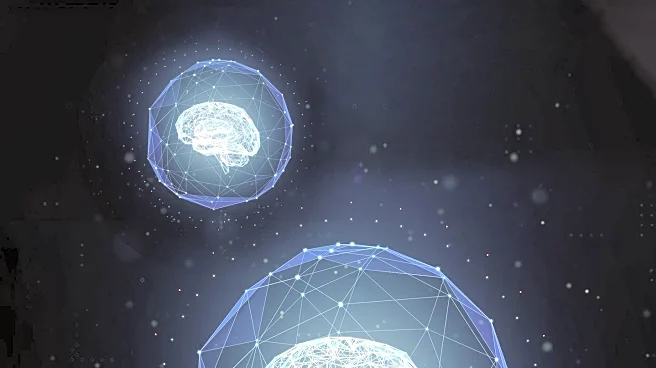What's Happening?
Chinese scientists have successfully transplanted human stem cells, engineered to produce dopamine, into mice, resulting in reduced depressive behavior and increased pleasure levels. The study, published in Cell Stem Cell, demonstrates the potential of cell-based therapy to treat psychiatric disorders by reconstructing dysfunctional neural circuits. The transplanted cells helped alleviate symptoms of anxiety and resignation in depression-model mice, offering a promising approach to treating major depressive disorder.
Why It's Important?
This breakthrough in cell therapy could have significant implications for treating neuropsychiatric disorders, particularly major depressive disorder, which affects millions globally. By directly targeting and repairing brain regions involved in mood regulation, this approach offers a novel method for addressing treatment-resistant depression. The ability to enhance dopamine production in the brain could lead to new therapies that improve mental health outcomes and quality of life for patients.
What's Next?
Further research is needed to explore the clinical applications of this cell therapy in humans. Scientists may investigate the long-term effects and safety of dopamine-producing cell transplants, potentially leading to new treatments for depression and other psychiatric disorders. The study's success could pave the way for advancements in regenerative medicine and personalized therapies for mental health conditions.









